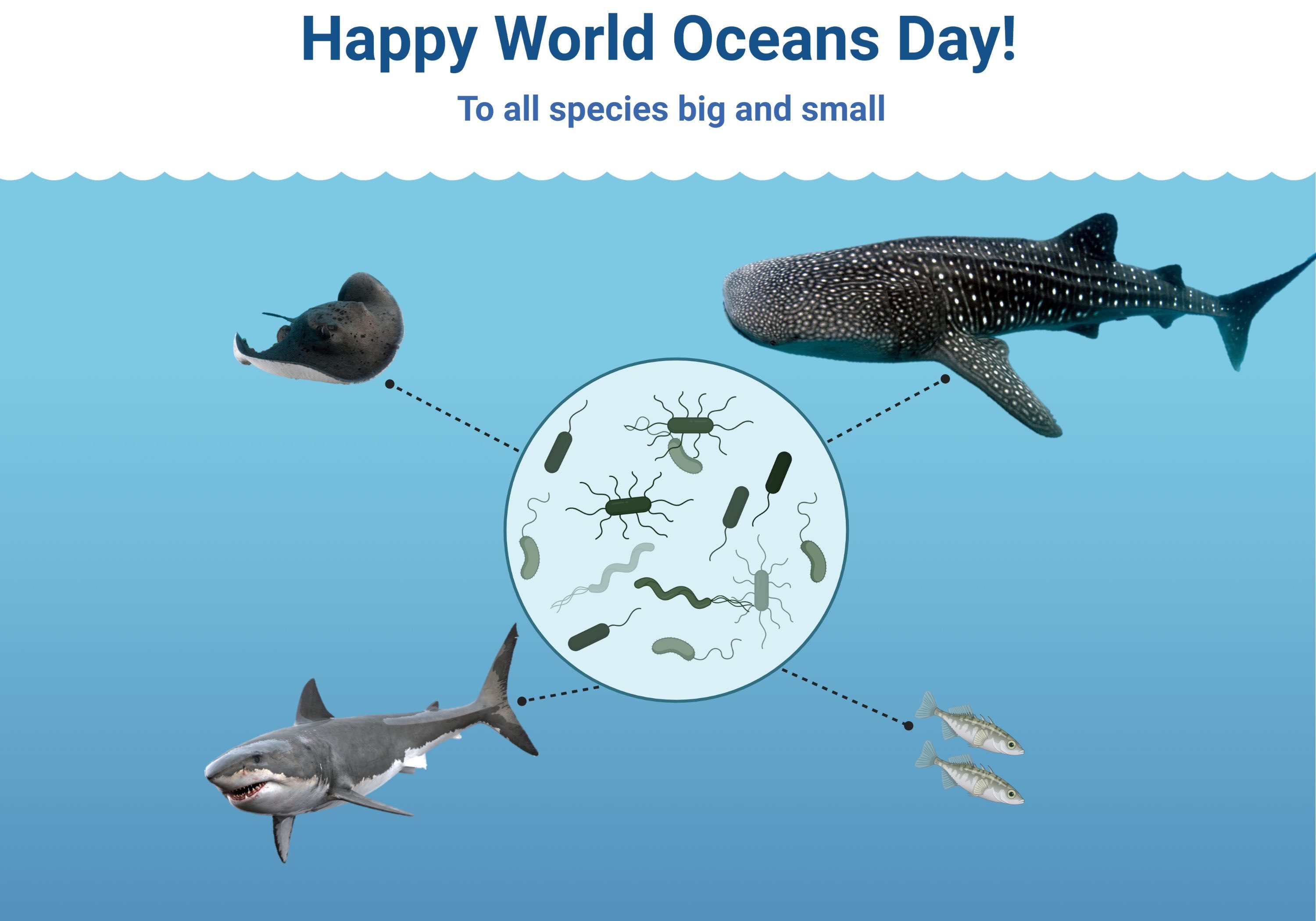World Oceans Day 2022

Microbes are tiny but mighty and are incredibly important marine organisms. Oceanic microbes contribute between 50 and 80% of the oxygen we breathe. Microbes inhabit all marine ecosystems, form beautiful coral reefs to deep sea hydrothermal vents. They also form relationships with host organisms. Relationships between microbes and their host vary, and we are just beginning to understand these complex relationships.
The Dinsdale lab (https://linktr.ee/dinsdalelab) studies microbes associated with ecologically important hosts, including sharks and corals. Sharks have important ecological functions, and many species are understudied, and their populations are threatened by human activity. Whale shark microbiomes vary across days which hints that their microbiome may change in response to host requirements and environmental factors (Skye et al. In Prep). Shark microbiomes follow patterns of phylosymbiosis, which reveals that microbiomes are shaped by host evolution (Doane et al. 2020). Stingray microbiomes can vary across locations, but microbes are selected by the host (Kerr et al. In Prep). Leopard shark microbiomes do not change in captivity, which is good news for aquarium conservation initiatives (Goodman et al 2022). Tiger, dusky, and Galapagos sharks have similar but species specific viromes, but the driving force behind virome composition is unknown (Hesse et al. In Review). Corals are ecosystem builders and are being threatened by acidification and warming ocean temperatures. by Coral animals harbor a unique microbiome, which helps them adapt to local temperature fluctuations (Lima et al. 2020).
Our goal is to understand how microbes interact with their host, and how these relationships manifest ecologically. We are lucky to work with great collaborators and ocean advocates like the Huveneers Lab, California Department of Fish and Wildlife, NOAA, Large Vertebrate Marine Research Institute, Bermuda Institute of Ocean Sciences and many others. As we celebrate World Oceans Day on June 8th, we appreciate the importance of the ocean, and all its tiny residents.
